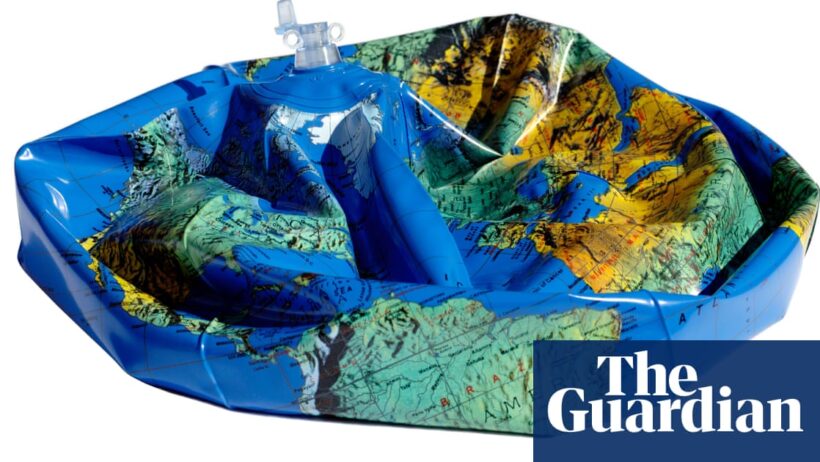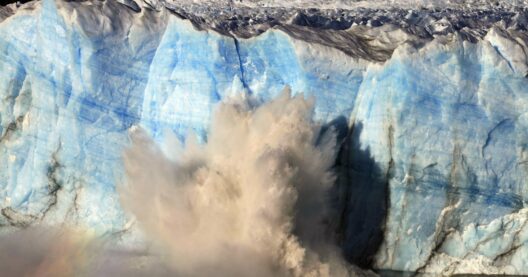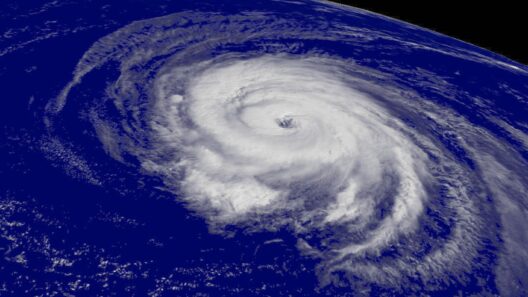In the realm of contemporary discourse surrounding climate change, a myriad of perspectives exist. Among the most provocative of these are the flat Earth theorists, who challenge conventional scientific understanding not only of the planet’s shape but also of climate change itself. This exploration aims to elucidate whether those who subscribe to flat Earth beliefs accept or reject the scientific consensus on global warming, examining their reasoning and motivations in depth.
To begin this inquiry, it is essential to recognize the foundational beliefs of flat Earth proponents. Adherents to this philosophy assert that the Earth is a flat disc, rejecting centuries of astronomical evidence, including images from space, satellite data, and the fundamental principles of physics that support the spherical model of our planet. Central to their ideology is a profound skepticism regarding established scientific authorities, which extends beyond the realm of geography into areas such as climate science.
The flat Earth narrative posits that mainstream science is steeped in deception. Consequently, when discussing global warming, these individuals often adopt a contrarian stance. Many flat Earthers either outright deny the phenomenon of climate change, dismissing it as a hoax perpetrated for political or financial gain, or they concede that climate change exists but argue it is not influenced by human activity. This perspective often flirts with conspiratorial thought processes, where large-scale climate initiatives are framed as instruments of control.
Critically analyzing the flat Earth viewpoint on global warming reveals a spectrum of beliefs. Some adherents maintain that fluctuations in climate are a natural occurrence, a cyclic aspect of Earth’s history that has been manipulated by scientists to push agendas that promote economic interests, such as green energy initiatives. This belief in natural cycles aligns with a broader trend among climate change skeptics, who often cite historical episodes of warming and cooling as evidence against anthropogenic effects.
Merely asserting that flat Earthers deny global warming overlooks the complexity of their beliefs. For some, the discourse surrounding climate change intersects intriguingly with their ideology. They may argue that while climate change is a reality, the narrative of an impending environmental catastrophe is exaggerated. This positioning often invites a paradox: acknowledging climate change’s existence while vehemently opposing the systemic responses that many climate scientists advocate.
This is where the intersection of ideology and activism becomes particularly notable. Many flat Earthers engage with environmental issues through an alternative lens, advocating for what they might term ‘natural living’ or ‘organic connection to the Earth.’ This perspective suggests a back-to-basics lifestyle in stark contrast to the mainstream environmentalist ideology, which frequently advocates for technological solutions to combat climate change.
Moreover, the rejection of climate science leads to an interesting divergence in educational engagement. Flat Earthers often attempt to educate others about what they perceive as the truth of global warming. The methodologies they deploy, however, tend to lean heavily on anecdotal evidence or interpretive readings of data, rather than consensus-driven science. This can include distorted interpretations of climate models, selectively citing studies that support their preconceptions, or mischaracterizing the motivations of climate scientists.
Within their community, a contrarian spirit flourishes. The scepticism towards climate change often correlates with an overarching disillusionment with societal institutions, particularly governmental and scientific frameworks. Such cynicism fosters a fertile ground for theories that contend climate change as a mere tool wielded by those in power. The rhetoric surrounding their beliefs is often peppered with warnings of overreach by regulatory bodies that seek to impose environmental restrictions under the guise of climate action.
The engagement with environmental activism is nuanced within this demographic. While some flat Earthers vehemently oppose mainstream environmental efforts, advocating for personal responsibility over larger systemic change, others might surprisingly embrace ecological issues. They enthusiastically endorse the reduction of pollutants and waste, albeit couched in the language of personal accountability rather than collective responsibility.
Summarily, the flat Earth discourse does not entirely exclude a concern for environmental issues. Instead, it offers a distinctive interpretation that aligns with their broader belief systems. Discussions on climate change within flat Earth circles frequently reflect a unique synthesis of skepticism, dissatisfaction with established institutions, and an advocacy for a regression towards perceived natural living. This amalgamation complicates the straightforward categorization of those who deny global warming outright.
Conclusively, the dialogue surrounding flat Earth beliefs and their position on global warming unveils a tapestry of contradictions, intertwining skepticism with selective activism. It challenges preconceived notions about environmental beliefs and positions. By shedding light on these extreme views, it becomes evident that the rhetoric surrounding climate change remains as varied and complex as the individuals who engage with it.
As society grapples with climate concerns, understanding divergent perspectives, including those of flat Earthers, is crucial. It allows for a more informed discourse that may bridge the chasm between disparate viewpoints, ultimately fostering a more nuanced dialogue on the future of our planet and the actions necessary to mitigate anthropogenic climate change.








